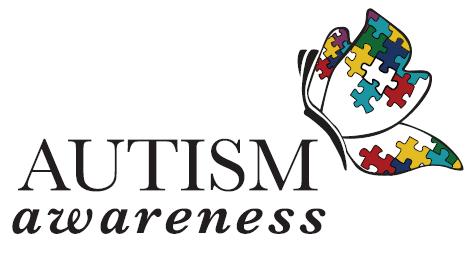 In conjunction with Autism Awareness Month, the Centers for Disease Control and Prevention has released new data that Autism Spectrum Disorder (ASD) now affects 1 in every 68 children in the United States, an increase of 30% over the past two years. Although earlier identification and diagnosis may be contributing to the rise in numbers, ASD is still the fastest-growing serious developmental disability in the U.S.
In conjunction with Autism Awareness Month, the Centers for Disease Control and Prevention has released new data that Autism Spectrum Disorder (ASD) now affects 1 in every 68 children in the United States, an increase of 30% over the past two years. Although earlier identification and diagnosis may be contributing to the rise in numbers, ASD is still the fastest-growing serious developmental disability in the U.S.
Autism is the most common, severe condition in ASD, a range of developmental disorders that affect communication, social interaction and sensory skills. While autism can afflict anyone, males are 4.5 times more likely than females to be affected.
As public awareness has broadened, so have the resources and support for parents and caregivers who cope with the daily needs of autistic individuals. Our area of expertise lies in providing answers to the vision problems that are prevalent in autistic patients, including:
- Lack of eye contact
- Wandering eyes
- Staring at spinning objects or light
- Inability to focus or obsessive focusing on an object
- Poor hand-eye coordination and motor skills
- Difficulty judging spatial relationships between self and objects
- Poor coordination of central and peripheral vision
- Difficulty maintaining attention
- Hypersensitive vision, sideways viewing
Eye movement disorders and crossed eyes are also typical with autism, as well as nearsightedness, farsightedness and astigmatism. Problems are not limited to vision as the general public perceives. When the central and peripheral vision systems do not work together, it can lead to difficulties in processing and integrating visual information. Consequently, a child’s speech, cognitive, motor and perceptual abilities can be affected.
However, many of these symptoms can be improved through vision therapy with a developmental optometrist trained to work with autistic patients, as I am. In some cases, vision problems can actually mimic autistic symptoms and cause an incorrect diagnosis. I have treated several children who were misdiagnosed with autism and, after vision therapy, now lead normal lives.
If your child has been diagnosed autistic, we would first do a comprehensive evaluation to identify which visual problems he is suffering with. Your child would wear special lenses while asked to perform activities such as catching and throwing a ball, as we observe his visual and postural reactions to moving or steady objects and various stimuli.
Vision therapy can lessen many autistic visual symptoms, giving the child relief and freedom to live a more balanced life. Colored lens therapy is also available to encourage the eyes to relax and work together properly.
Goals of vision therapy would be to train and encourage growth in the areas of:
- Eye contact – initiating and maintaining
- Central and peripheral vision coordination
- Focusing and eye teamwork for near-skills such as reading and schoolwork
- Motor skills for activities such as bicycle riding and sports
- Visual information processing for better comprehension of what is being seen
- Organization and awareness of visual space and boundaries
- Reduce repetitive behavior associated with visual stimuli
We also recommend working with the Brain Balance Center of Edwardsville, which focuses on brain development through sensory motor exercises, cognitive activities and nutritional guidance. Coupled with vision therapy, we can address and improve many of the challenges faced by autistic children.
Many autistic individuals have undergone vision therapy with successful results. You can read some of these testimonials on vision help or testimonials on vision success stories online.
For more information or to schedule an examination, please contact our office today.
In cooperation with Autism Awareness Month, during the month of April, we will offer a 10% discount for autistic patients who sign up for vision therapy and pay in full up front. Please let us help open up new worlds to your autistic child. Together, we can make a difference.